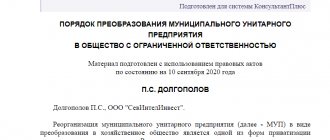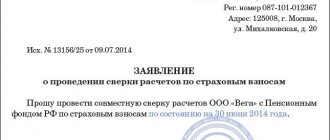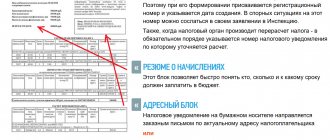"Uproshchenets" - tax agent for VAT
Companies using the simplified tax system are exempt from VAT payer obligations, however, they can become tax agents for this tax (clause 5 of article 346.11 of the Tax Code of the Russian Federation). This is possible in the following cases:
- rental of state or municipal property from state authorities and administration bodies, local governments;
- acquisition of goods (works, services), the place of sale of which is the territory of the Russian Federation, from foreign persons who are not registered with the tax authorities of the Russian Federation;
- sale of goods (work, services, property rights) to foreign persons not registered in the Russian Federation, as an intermediary with participation in settlements;
- purchase (receipt) of state or municipal property not assigned to state (municipal) enterprises and institutions;
- sale of property confiscated or sold by court decision, ownerless valuables, treasures and purchased valuables, as well as valuables that have passed by right of inheritance to the state;
- sale of raw animal skins, scrap and waste of ferrous and non-ferrous metals, secondary aluminum and its alloys, as well as waste paper;
- in other cases specified in Art. 161 Tax Code of the Russian Federation.
Let's take a closer look at the first two situations.
Rent of state property
When simplifiers lease state or municipal property from state authorities and administration bodies, local governments (except for municipal unitary enterprises, state unitary enterprises, institutions), they become tax agents for VAT. The tax rate depends on the terms of the agreement.
If in the lease agreement the price is determined excluding VAT or the tax is not mentioned there, then the amount of tax is calculated using the formula:
VAT on the rent amount = Rent amount × 20%
In this case, the rent is transferred to the authority in the amount specified in the lease agreement, and the tenant pays VAT “at his own expense.”
If the rental price in the contract includes the amount of VAT, then the tax is calculated at the calculated rate using the formula:
VAT on the rent amount = Rent amount × 20/120
The rent amount established in the contract is transferred to the lessor minus VAT. In such a situation, the tax is paid from the lessor's funds.
Example.
LLC "X" operates under the simplified tax system and is engaged in retail trade. The store rents municipally owned premises from the property management committee.
According to the lease agreement, the monthly rent is RUB 120,000. (including VAT - 20,000 rubles). Rent payment is transferred no later than the 3rd day of the month following the billing month. Thus, VAT on rent is 20,000 rubles.
LLC "X" acts as a tax agent, therefore it calculates, withholds and transfers VAT on the rental amount to the budget. In this case, the lessor receives 100,000 rubles.
The simplified tenant must draw up an invoice in one copy within the five calendar days following payment. Then register it in Part 1 of the sales book for the quarter in which the VAT base is determined. Additionally, you need to submit a declaration and show agent VAT in section 2 - separately for each landlord.
The tax is paid at 1/3 of the tax amount no later than the 25th day of each of the three months following the reporting quarter. In the quarter when the tax was transferred to the budget, the simplifier on the basis of “income minus expenses” has the right to take into account VAT in the amount of the rental payment and write it off as expenses (clause 8, clause 1, article 346.16 of the Tax Code of the Russian Federation).
Submit your VAT tax agent return online for free
Purchasing goods or services from foreigners
A company using the simplified tax system is recognized as a tax agent for VAT if in Russia it purchases goods (work, services) from foreign persons who are not registered in the Russian Federation. The tax base for such transactions is determined by the tax agent. It is equal to the amount of income from the sale of goods (works, services) including VAT.
The procedure for calculating tax is the same as for leasing state property. Then, in the same way, you need to issue an invoice, register it in the sales book, submit a declaration and pay the tax. The VAT amount can be recognized as an expense.
Example.
Example.
In the first quarter of 2022, the Polish company provided legal services to Romashka LLC. The cost of services, taking into account taxes subject to withholding in accordance with the legislation of the Russian Federation, is 240,000 rubles. A foreign company does not have a representative office in the Russian Federation. The acceptance certificate for services provided was signed in the first quarter of 2022. All calculations are made in rubles. Romashka LLC is a tax agent and is obliged to calculate, withhold and transfer VAT on the amount of payment for services to the budget: 40,000 rubles. (240,000 × 20/120).
Online course for the chief accountant of a company using the simplified tax system: accounting and tax accounting, reporting and planning. The result is a diploma of professional retraining
Sign up
Work of individual entrepreneurs with VAT when performing the duties of a tax agent
An individual entrepreneur is recognized as a tax agent for VAT in the cases established by Art. 161 of the Tax Code of the Russian Federation, for example:
- purchasing goods (work, services) on the territory of the Russian Federation from foreign persons who do not have a representative office in the Russian Federation;
- leasing federal, municipal property or property of constituent entities of the Russian Federation from state authorities and local governments;
- acquiring state (municipal) property that is not assigned to state (municipal) enterprises (institutions), constituting the state (municipal) treasury;
- selling, by court decision, confiscated and ownerless property, treasures and purchased valuables, as well as valuables transferred to the state by right of inheritance;
- selling as an intermediary (with participation in settlements) goods (work, services, property rights) of foreign persons who are not registered for tax purposes in the Russian Federation;
- and etc.
This also applies to individual entrepreneurs on the simplified tax system. This special regime does not exempt the entrepreneur from agency VAT. You can read about how an individual entrepreneur should act in a given VAT agency situation on our website:
- “Who is recognized as a tax agent for VAT (responsibilities, nuances)”;
- “VAT tax agent for transactions with state property”;
- “How can a tax agent deduct VAT when purchasing goods (work, services) from a foreign seller”;
- “How to correctly fill out a VAT return for a tax agent?”
Import of goods
The import of goods into the Russian Federation and other territories under its jurisdiction is subject to VAT (Article 146 of the Tax Code of the Russian Federation). This also applies to simplifiers (clauses 2, 3 of Article 346.11 of the Tax Code of the Russian Federation). The procedure for paying tax depends on the country from which goods are imported.
- From the EAEU (Kazakhstan, Belarus, Kyrgyzstan, Armenia) - transfer VAT to your Federal Tax Service no later than the 20th day of the month following the one in which the goods are accepted for accounting. Within the same time frame, you must submit a declaration on indirect taxes, an application for import and other documents.
- From other countries - pay VAT at customs before submitting a customs declaration. The goods will not be released without paying taxes and other customs duties. The specific period depends on the procedure under which the goods are placed. Please include tax information in your goods declaration.
In addition, customs legislation provides in a number of cases special deadlines for paying VAT.
The list of goods exempt from VAT is presented in Art. 150 Tax Code of the Russian Federation
In general, the amount of VAT payable to the budget when importing goods into the customs territory of the Russian Federation is determined by the formulas:
VAT = Tax base × Rate
Tax base = Customs value + Customs duty + Excise tax
When importing goods from member states of the Eurasian Economic Union, the amount of VAT payable is determined by the formula:
VAT = (Cost of goods under the contract + Excise tax) × 20% (or 10%)
The VAT rate is applied depending on the type of goods: 10 or 20%. VAT payable to the budget is calculated in Russian rubles and rounded to the second decimal place.
The “import” VAT paid on the simplified tax system “income minus expenses” can be taken into account as part of costs. If you are using the simplified tax system for “income”, you cannot take into account taxes and other expenses.
Submit VAT and indirect tax returns for importers online
Simplified LLC and issuing invoices
When issuing a VAT invoice under a simplified taxation system, the relevant question is whether an LLC can obtain the right to deduct tax. When using the system, this issue is quite complicated, since issuing an invoice is not provided, just as deductions are not provided for simplifiers.
According to Article 171 of the Tax Code of the Russian Federation, tax agents have the right to a deduction if goods were purchased for transactions subject to tax, and upon purchase, deductions were made to the budget.
Now tax returns are submitted in electronic format, and requests from the Federal Tax Service are submitted in the same way. To analyze declarations, a special program is used by tax authorities, which is called VAT ASK 2. Declarations are checked automatically and if errors are identified, the simplifier who issued the VAT invoice will need to provide explanations.
Invoice with allocated VAT
When simplifiers issue an invoice (or UPD), including for an advance payment, with VAT allocated in it, they must transfer the specified amount of tax to the budget (clause 5 of Article 173 of the Tax Code of the Russian Federation). The payment deadline is no later than the 25th day of the month following the expired quarter. There is no need to divide the payment into three parts.
Additionally, there is an obligation to submit a VAT return electronically using the TKS no later than the 25th day of the month following the quarter in which the VAT invoice was issued.
The simplifier cannot deduct “input” VAT and VAT paid on an advance payment, since he is not a VAT payer. The amount of tax received from buyers on such invoices is not taken into account either in income or expenses.
Exchange electronic invoices with counterparties
Work of individual entrepreneurs with VAT in case of issuing an invoice to them
As we have already said, the Tax Code does not require individual entrepreneurs using the simplified tax system to present VAT to buyers and issue invoices. But in some situations, an entrepreneur can do this voluntarily. In this case, he is obliged to transfer VAT to the budget and report for it with a declaration in the general manner (subclause 1, clause 5, article 173 of the Tax Code of the Russian Federation). Moreover, he must pay the tax at once. Persons on the simplified tax system do not have the right to extend the payment for three months.
Read more about this situation in the article “VAT under the simplified tax system: in what cases should I pay and how to take into account the tax in 2022 - 2019?”
See also the material “A simplifier should not pay VAT if the buyer mistakenly indicated the tax on the payment.”
Transactions with intermediaries
If simplified intermediaries issue and (or) receive invoices, acting in the interests of another person, they are required to keep logs of received and issued invoices (clause 3.1 of Article 169 of the Tax Code of the Russian Federation).
Commission agents and agents who act on their own behalf, as well as persons conducting activities on the basis of transport expedition contracts in the interests of other persons and taking into account remuneration for the execution of these contracts as part of income under the simplified tax system, must keep a log of received and issued invoices.
Moreover, if simplifiers sell or purchase goods, works or services on their own behalf, they do not have to pay VAT. In this situation, an obligation arises to issue (reissue) invoices, highlighting the amount of VAT in them (clause 1 of Article 169 of the Tax Code of the Russian Federation).
In addition, an invoice must be drawn up if the simplifier, as a commission agent (agent acting on his own behalf), has transferred an advance or received goods (work, services) purchased for the principal (principal) from the seller - a VAT payer. And in this case, the invoice is drawn up in two copies, one of which is transferred to the principal (principal).
Is it possible to issue an invoice without VAT?
In some cases, VAT payers issue invoices without tax. For example, if they received an exemption under Article 145 of the Tax Code of the Russian Federation . In such invoices the entry “Excluding tax (VAT)” is made. Such a document does not entail the obligation to pay tax.
Does the payer of the simplified tax system have the right to issue an invoice without VAT? Judicial practice suggests that this will not help him. For example, this is indicated in the resolution of the Supreme Court of the Supreme Soviet of April 12, 2018 No. F02-1385/2018 in case No. A19-13739/2017. The bottom line is that the benefits provided for in Article 145 of the Tax Code of the Russian Federation do not apply to “simplified workers” . As well as other benefits for VAT payers.
Conclusions. There is no point in issuing invoices for a company or individual entrepreneur using the simplified tax system. If this is done, it is usually in order to please a large counterparty. But the benefits from such cooperation seem doubtful. After all, the tax invoiced must be paid to the budget. And at the end of the quarter, submit a VAT return to the Federal Tax Service in electronic form. Failure to fulfill the taxpayer's obligations will entail not only additional tax payment, but also penalties.
Transactions under partnership agreements
Companies using the simplified tax system must pay VAT to the budget if they carry out transactions under simple partnership agreements (joint activity agreements), investment partnership agreements, property trust management agreements or concession agreements on the territory of the Russian Federation (Article 174.1, Article 346.11 of the Tax Code of the Russian Federation). In addition, in this situation, simplifiers must submit a VAT return no later than the 25th day of the month following the expired tax period (clause 5 of Article 174, clause 4 of Article 174.1 of the Tax Code of the Russian Federation).
In addition to the obligation to pay VAT to the budget, simplifiers with a partnership agreement may have the obligation to draw up an invoice (Article 174.1 of the Tax Code of the Russian Federation).
Do individual entrepreneurs work with VAT?
In accordance with paragraph 1 of Art.
346.12 of the Tax Code of the Russian Federation, individual entrepreneurs are recognized as taxpayers who can apply the simplified tax system (with some exceptions). Thus, taking into account the provisions of paragraph 3 of Art. 346.11 of the Tax Code of the Russian Federation, being on the simplified tax system, individual entrepreneurs practically do not encounter VAT due to the fact that the obligation to pay tax does not arise. By virtue of the provisions of paragraph 2 of Art. 170 of the Tax Code of the Russian Federation, VAT is written off in the cost of a particular purchased product, work, service or property right. See the material “What is the procedure for writing off VAT on expenses (postings)?”
However, when acting as a tax agent or participant in a partnership, issuing a VAT invoice to the buyer or importing goods into the territory of the Russian Federation, the individual entrepreneur pays VAT according to the rules provided for by the general taxation regime.





